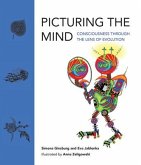This new series presents innovative titles pertaining to human origins, evolution, and behavior from a multi-disciplinary perspective. Subject areas include but are not limited to biological and physical anthropology, prehistoric archaeology, evolutionary psychology, behavioral ecology, and evolutionary biology. The series volumes will be of interest primarily to students and scholars in these fields. What are the origins of human psychopathology? Is mental illness a relatively recent phenomenon, or has it been with us throughout evolution? In Origins of Psychopathology, Horacio Fabrega Jr. employs principles of evolutionary biology to better understand the significance of mental illness. He explores whether what psychiatry has categorized as mental disorders could have existed during earlier phases of human evolution. Fabrega approaches the prominent features of mental disorders as adaptive responses to the environment and life's circumstances, which in turn can only be understood in the context of our evolutionary past. Taking his cue from theoretical issues raised by research into primate behavior and early hominid evolution, he poses the question: What, if any, aspects of mental illness are rooted in our evolution? Does mental illness occur in primates and other animals, and if so, what does this tell us about mental illness in human evolution? How has mental illness played an adaptive role? How has the development of language and higher cognitive functions affected characteristics of psychopathology? Fabrega synthesizes insights from both the clinical and the evolutionary points of view. This facet of psychopathology, which involves its origins and manifestations viewed acrossthe expanse of human evolution, has, until now, been largely neglected in psychiatric education, theory, and practice.
Hinweis: Dieser Artikel kann nur an eine deutsche Lieferadresse ausgeliefert werden.
Hinweis: Dieser Artikel kann nur an eine deutsche Lieferadresse ausgeliefert werden.








